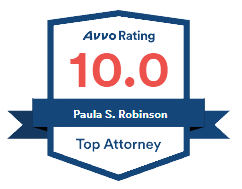Pennsylvania workers’ compensation laws protect both employees and employers in case of a work related accident or disease. These benefits include wage loss and medical benefits for the injured worker. Also, as the workers’ compensation process is the exclusive remedy (with only a few exceptions), employers typically do not need to be worried about being sued civilly by their employees.
So let’s say that you have an injury at work, you give the requisite notice to your employer, and you are now receiving your wage loss and medical benefits, how long can you receive them? Theoretically, you could receive both until you pass away, but in reality, that does not happen. You will continue to receive these benefits until a workers’ compensation judge orders that your benefits be modified, suspended, or terminated; or until you settle your case.
What is the difference between modification, suspension, and termination? Well, these are all actions that a workers’ compensation judge can take to reduce your benefits. It is fair to say that all of them start by the workers’ compensation insurance carrier sending you for an Independent Medical Evaluation with a doctor of their choosing. If that Dr. says that you are capable of light or sedentary (sitting) work, then the workers’ compensation adjustor will contact your employer to see if there is any such work for you to return to, to get you off of compensation. If your employer does not have such work for you to return to, then the workers’ compensation adjustor can either choose to try and settle the case or schedule a vocational interview with a vocational expert (which should take place in your attorney’s office) to assess your vocational and educational background, including all past education and past job experiences, in an effort to find you work “generally” in the public to give an earning power assessment.
Let’s say, for example that the job on which you were injured paid you $20.00 per hour, and the vocational expert (hired by the workers’ compensation carrier) finds you work that pays $10.00 per hour, then the carrier will hire an attorney and petition the Court to modify your wage loss benefits, to reduce the amount you are getting in wage loss benefits.
In the same scenario, if work is again found “generally” that pays you the same $20.00 as your pre-injury job, then the carrier will petition the court to suspend your benefits, so that all wage loss benefits will stop. If the Independent Medical Examiner gives the opinion that you are fully recovered and can return back to your original job, then the carrier will petition for court for termination of your benefits. This is the worst of all, as the carrier is looking to stop both wage loss and medical benefits, leaving you with no benefits at all.
The good news with any potential reduction in your workers’ compensation benefits is that it does not happen overnight, and could potentially take up to a year in litigation with a workers’ compensation judge. Meanwhile, the workers’ compensation carrier cannot unilaterally stop either your wage loss or medical benefits.
If a Petition is filed against you for any of these actions, the Petitions will be assigned to a Workers’ Compensation Judge who will be the ultimate fact finder and make credibility determinations as to the various witnesses. Just because a Petition is filed against you doesn’t automatically mean that the workers’ compensation carrier has won.
Also, keep in mind that once your case is in litigation, the parties will be given an opportunity to enter into a Mediation to attempt to resolve your case for a lump sum amount. It is good to be aware of what could potentially happen, but no need to fear the worse, as usually there can be a resolution to the situation.









